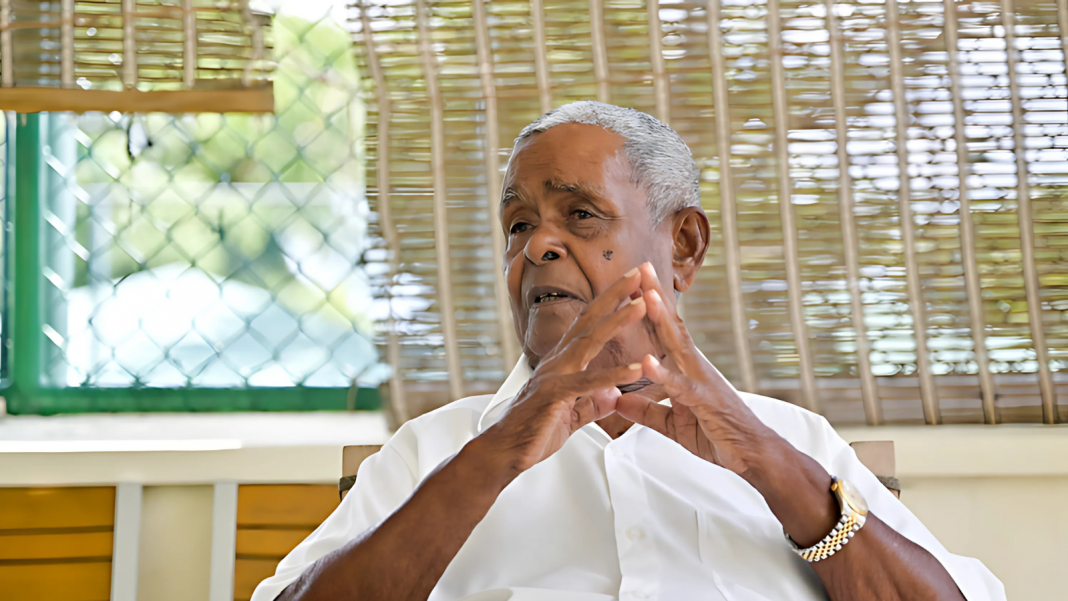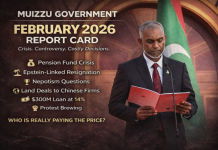One of the Maldives’ most prominent tourism sector figures, Mohamed Manik, also known as ‘Champa Uhchu,’ has requested the government to reconsider and suspend new regulations mandating that foreign currency income from the tourism sector be deposited in local banks. This request was formally made through a letter addressed to the Maldives Monetary Authority (MMA), which outlines serious concerns about the financial impact of these regulations on businesses operating in the Maldives’ tourism industry.
According to the letter, submitted under Manik’s shareholding company Kurehdhoo Holdings, requiring resorts to deposit USD 500 per tourist could result in substantial financial losses for businesses already navigating a high-cost environment. The company argues that this blanket rule unfairly targets the tourism sector and has been imposed without sufficient consultation with industry leaders.
Key issues raised in the letter
Manik’s letter raises several points about the regulations, emphasizing their potential negative impact on the tourism sector:
- Lack of Consultation: Manik claims the decision was made without adequate input from tourism industry professionals, despite the regulation’s potential to significantly disrupt operations.
- No Adjustment Period: The new rules came into effect immediately upon publication in the government gazette, giving businesses no time to adapt to these changes.
- Uniformity Over Specific Needs: The regulation applies a one-size-fits-all standard across all resorts, disregarding the different lengths of stay by tourists at various resorts.
- Special Guests Not Exempt: The rule fails to account for exceptions, such as tourists who visit resorts under sponsorship or fame trips, creating financial strain for resorts that host such guests.
- Reduced Welfare for Staff: Manik warns that, due to financial constraints imposed by the regulation, resorts may be forced to cut costs, which could impact staff welfare programs.
- Clarity Lacking for Resorts with High Investment Debt: The letter stresses that the regulations don’t address how heavily indebted resorts, some with investments exceeding USD 70 million, are expected to manage under these new rules.
In his letter, Manik pledges his commitment to continue supporting the government on key issues but cautions that these regulations could undermine investor confidence in the Maldives’ tourism industry. This, he believes, would ripple through the economy, affecting jobs, incomes, and the overall stability of the tourism sector.
Resistance from other resorts
Many other resorts have also expressed their concerns and resistance to the foreign exchange rules issued by the MMA. The guidelines, which were published on October 1, require all resorts to register with the MMA by October 30 and to deposit USD 500 for each tourist who stays at a resort and USD 25 for guests at guesthouses. The new rules aim to increase dollar inflow into the local economy, a goal that was discussed with industry stakeholders prior to the regulation’s implementation. However, most resorts argue that the rules fail to consider the unique realities of the tourism industry and current economic conditions in the Maldives.
A senior figure in the tourism industry, who attended the MMA meetings, revealed that industry stakeholders had presented alternative proposals to boost dollar reserves without mandating such stringent deposit requirements. However, the government ultimately rejected these proposals, opting instead for a broad application of the regulation.
Impact on tourism and the broader economy
Tourism is the backbone of the Maldivian economy, contributing significantly through taxes, fees, and rent payments. Manik and others in the industry argue that this new regulation imposes additional burdens that could threaten the industry’s profitability and sustainability. They warn that this could have a negative cascading effect, from job losses to reduced spending on local goods and services, ultimately straining the Maldives’ economy.
With many resorts already facing pressure from rising operational costs and substantial financial obligations, the regulation is viewed by many as unrealistic and detrimental to long-term growth in the tourism sector. As the deadline has passed, the MMA faces mounting pressure to either suspend or revise the policy to align better with the financial realities faced by tourism businesses in the Maldives.


















